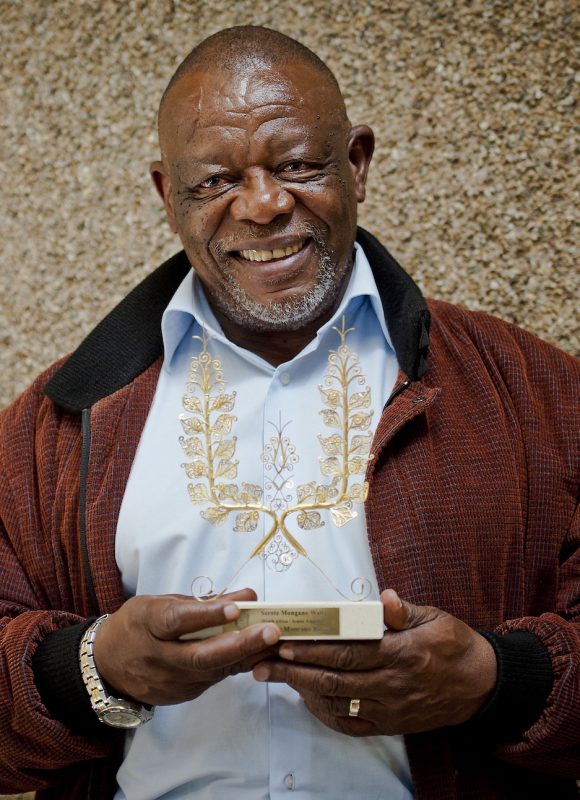PIONEER
Mongane Wally Serote

Human rights activist | Constitution Drafter | Cultural Commentator
Born: 8 May 1944
"There can be no South African discourse without the emancipation of the African voice.”
Who is
Mongane Wally Serote?
Award-winning poet and writer, involved in the anti-apartheid movement.
Professions
and Roles
Poet and writer.
Best Known For
Literary contributions to South Africa. Participated in the arts, culture, and heritage sectors of the Convention for a Democratic South Africa (CODESA) negotiations, as well as a member of the Constitutional Assembly drafting of the Constitution.
Life highlights
- Serote was arrested under the Terrorism Act in 1969, and spent nine months in solitary confinement before being released without charge.
- He studied in New York City and obtained a Fine Arts degree from Columbia University in 1979.
- Serote published his first collection in 1972, titled, Yakhal’Inkomo, which won the Jonker Poetry Prize in 1973.
- He then lived in exile in Botswana from 1977, where he was instrumental in establishing the Medu Art Ensemble.
- In 1986, Serote relocated to London where he began working for the African National Congress’ (ANC) Department of Arts and Culture.
- Serote won the Noma Award for Publishing in Africa in 1993.
- He became a Member of Parliament (MP) and the Chairperson of the Arts, Culture, Language, Science and Technology Portfolio Committee following the 1994 elections.
- Serote participated in the arts, culture and heritage sectors of the CODESA negotiations, and was a member of the Constitutional Assembly drafting of the Constitution.
- He served as the Chairperson of the Parliamentary Select Committee on Arts and Culture, and was the Chief Executive Officer of Freedom Park.
- Serote founded and chaired the Indigenous Knowledge System Trust of South Africa.
- In 2008, his poetry book, Third World Express, was selected for Africa Book Centre’s 100 Best Books of the Twentieth Century.
IN THEIR OWN WORDS
“The negotiations for a democratic South Africa, the constituting of the Truth and Reconciliation Commission and the emergence of the non-racial, non-sexist and democratic South Africa, attracted, inspired and raised a consciousness about the bounds of possibilities for the human race to create a better nation. The profile and the position of our country were transformed for the best. It is the ethics, honesty and values, the culture and the history expressed by these processes which touched the hearts and the minds of humanity and whispered to their inner beings, saying ‘look’.
There can be no South African discourse without the emancipation of the African voice.”
– Wally Serote
IN THE WORDS OF OTHERS
“If hope is a tool, language is its implement, and, again, Serote would effect transformation through language. His war against apartheid has been a way of words, in the most literal sense, and the world has witnessed that such a war can influence hearts and minds.”
– Nicholas Meihuizen, Faculty Member at North-West University
Parliament of the Republic of South Africa (2018) Theme Committee Book Series 1-6
